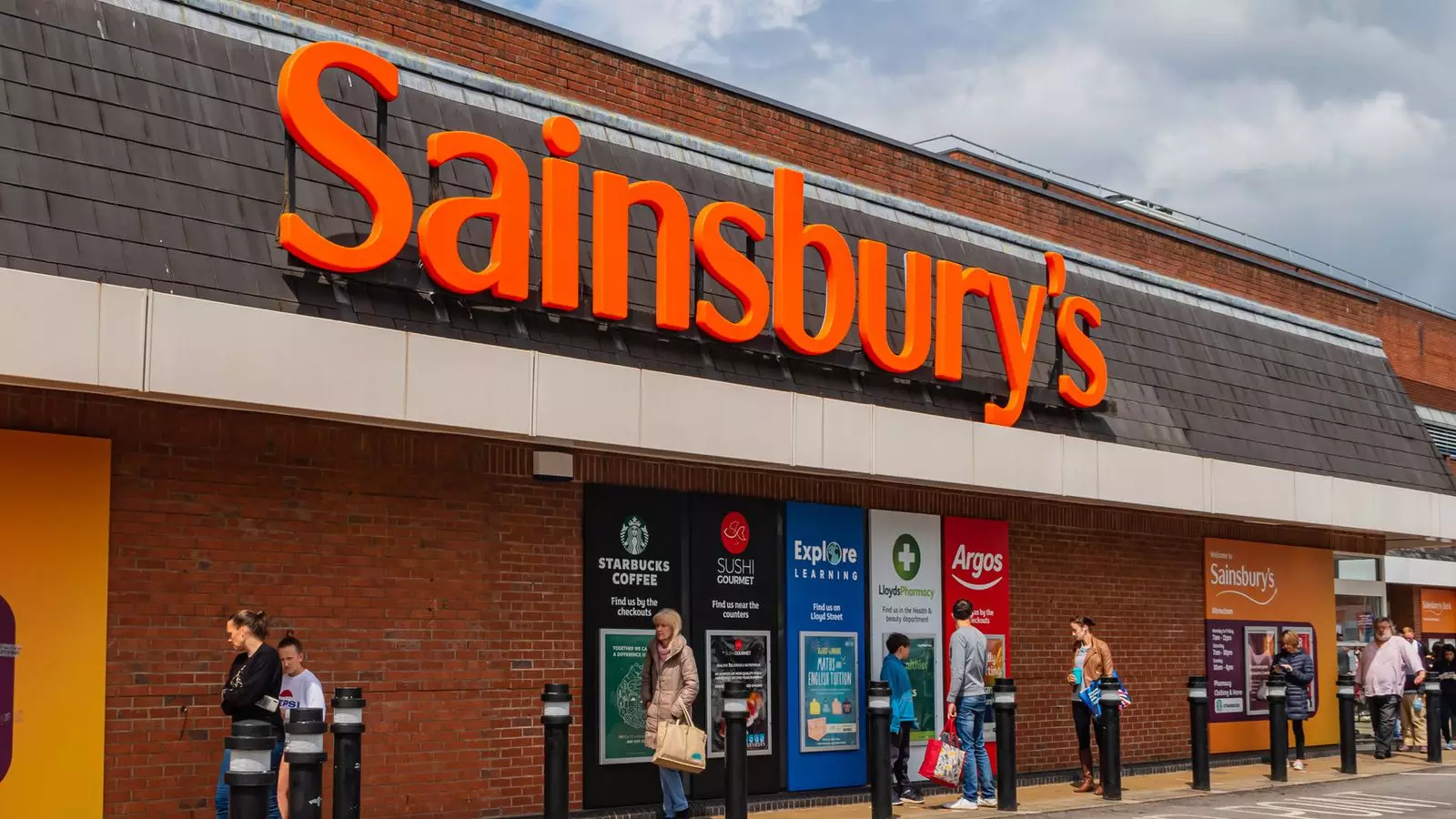Sainsbury’s, the UK supermarket giant, has recently announced a plan to eliminate over 3,000 jobs. This decision primarily targets head office positions and senior management roles, signaling a dramatic shift in the company’s operational strategy. The retailer is also set to close the last of its 61 in-store cafes, hot food counters, and pizza and patisserie stations, citing a decline in customer usage. This severe restructuring reflects not just a response to consumer behavior, but also a strategy aimed at navigating the increasingly complex and demanding financial landscape.
The grocery market has been evolving rapidly, with dramatic shifts in consumer preferences and economic pressures leading many retailers to rethink their models. The rising costs associated with inflation and government budget measures have compounded these challenges, forcing Sainsbury’s to make difficult choices. This situation illuminates the broader themes of cost management and the evolving nature of retail, particularly in a post-pandemic world.
Sainsbury’s decision to cut jobs and close cafes is described as part of its “Next Level strategy,” which aims to enhance operational efficiency and adapt to what Chief Executive Simon Roberts has labeled a “challenging cost environment.” In his statement, Roberts expressed the necessity of making tough decisions to ensure the company maintains its competitive edge while navigating rising costs.
The impending changes are not merely about reducing workforce numbers; they are indicative of a larger shift in the way Sainsbury’s intends to operate moving forward. The company, which employs approximately 148,000 workers, finds itself at a crossroads where the need to streamline operations must balance against its commitment to serving customers effectively. This is an arduous tightrope that many retailers are currently walking.
Sainsbury’s long-held emphasis on in-store dining options has not held up against the pressures of changing consumer habits. The fact that customers are not utilizing the remaining cafes regularly prompts a critical reflection on how retail environments need to evolve. The pandemic has accelerated the trend towards convenience and takeaway options, compelling supermarkets to reallocate resources to meet these demands.
Sainsbury’s challenges are exacerbated by the economic backdrop of rising costs, particularly related to tax measures set to be imposed by the government. The retailer has indicated that it anticipates facing an annual cost increase exceeding £140 million due to additional national insurance contributions alone. The company’s ability to absorb these costs has been overstretched, necessitating tough operational choices that are likely to have profound implications for employees and the retail landscape.
In a broader context, economic analysts and industry bodies have raised alarms about the potentials of such challenging financial conditions. They warn that sustained high costs could choke investments and jobs, leading to broader economic repercussions. The concern is not limited to Sainsbury’s; rather, it reflects an overarching trend that threatens the retail industry’s stability as a whole.
The higher expenses, which supermarkets like Sainsbury’s are grappling with, translate into increased prices for consumers, creating a feedback loop that ultimately impacts everyone from corporations to everyday shoppers. Such developments raise questions about the long-term viability of previously sustainable business models within the retail sector.
The announcement of job cuts has drawn sharp criticism from labor unions, who label these changes as manifestations of “corporate greed.” Unite the Union’s national officer for food, Paul Travers, articulated strong sentiments regarding the timing and nature of Sainsbury’s decisions. He described the layoffs as a betrayal of workers, suggesting that the company is prioritizing profit over people during a particularly sensitive economic time.
Travers’s perspective highlights an essential dialogue around corporate responsibility and the ethical implications of workforce reductions. In a world where workplace morale and public perception matter more than ever, Sainsbury’s must consider not only the financial implications of its actions but also the potential fallout regarding employee loyalty and community trust.
As Sainsbury’s embarks on this new chapter, the implications of its decision-making will echo throughout the retail sector. The path forward remains laden with challenges as the company adapts to changing consumer preferences amidst financial pressures. While streamlining operations may lead to immediate cost savings, it is crucial that Sainsbury’s balances these actions with a commitment to its workforce and the communities it serves.
The future of the supermarket chain will depend on its ability to navigate these complexities while remaining responsive to consumers’ evolving needs. The ongoing conversation regarding corporate accountability and economic responsibility will undoubtedly shape not only Sainsbury’s trajectory but the retail landscape at large, highlighting the critical balance between efficiency and ethical governance in business practices.


Leave a Reply